
In the spiritual history of India, Akka Mahadevi is the woman saint who dared to walk naked in the 12th century, covered only with her long tresses. She was a picture of asceticism, intense dispassion and complete renunciation. Beneath this majestic and awe-inspiring persona lay a tender heart throbbing with passionate love for Lord Shiva in the form of Chennamallikarjuna (Lord white as jasmine). Her vacanas, poems of personal devotion to the Lord, reveal a unique amalgam of prema bhakti (ecstatic love), jnana (supreme wisdom) and vairagya (absolute detachment). Along with scaling the heights of spirituality, her undaunted courage and temerity to live life on her own terms in the face of incessant adversities and opposition is an example for womankind.
In the present study of Akka Mahadevi’s life and her vacanas, it is imperative to understand the tenets of Lingayatism since she was born in a Lingayat family. Her vacanas suggest that her formative years were deeply rooted in its ideologies.
On the other hand, it is also important to remember that every individual soul undertakes its own spiritual journey. The path is unique for every striving soul. Therefore, no religion or sect can proclaim mass liberation based on its tenets. In this respect Akka Mahadevi was a saint and mystic in her own right. A saint or a mystic has experiential knowledge of the Supreme Truth. She or he has no religion, caste or creed; the only religion that can be attributed to a mystic saint is the religion of pure love.
This story is from the {{IssueName}} edition of {{MagazineName}}.
Start your 7-day Magzter GOLD free trial to access thousands of curated premium stories, and 9,000+ magazines and newspapers.
Already a subscriber ? Sign In
This story is from the {{IssueName}} edition of {{MagazineName}}.
Start your 7-day Magzter GOLD free trial to access thousands of curated premium stories, and 9,000+ magazines and newspapers.
Already a subscriber? Sign In

Panchakroshi Parikrama of Varanasi
At the snow-capped Kailas, the Divine Lord Shiva was seated with Mother Parvati.
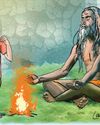
Gadai and the Monks
A fictional narrative based on incidents from the childhood of Sri Ramakrishna.

Chintayo momo maanosho Hori...
Sri Ramakrishna loved songs. There probably was no normal day when he did not sing some songs.
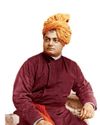
The Vedanta Vaccine
The world is still struggling under the impact of the pandemic due to Covid-19 for the last three years.
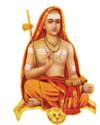
Chandrakirti's Chariot: Self in Madhyamaka Buddhism and Advaita Vedanta
The goal in Advaita Vedanta is the cessation of suffering and the attainment of true fulfillment. Suffering, according to this school, is due to ignorance of the true nature of the self and consequent erroneous identification with the body-mind.

Reminiscences of Sargachhi
Question: यद्यदाचरतत श्रेष्ठसतत्तदरेवरेतरो जनिः। ‘Whatever a superior person does, others do the same thing!’ (Gita 3:21) – What does this statement mean?
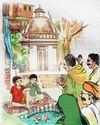
THE AUTUMN FESTIVAL
A fictional narrative based on incidents from the childhood of Sri Ramakrishna.
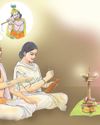
Bards of Guruvayur: Vilwamangalam II
Saints of India
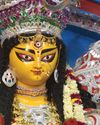
In the Universal Mother’s Divine Playground
Swami Vivekananda never taught the worship of Mother Kali. In a letter to Mary Hale he writes, “Kali worship is not a necessary step in any religion.
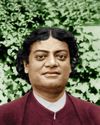
Swami Vivekananda: A Sportsman Par Excellence
In various books and articles, Swami Vivekananda has been called a spiritual leader, a prophet, a patriot, a social reformer, a philosopher, a yogi, a writer, an orator, an educationist, a musician, and so on.